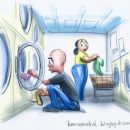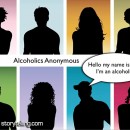What by a beautiful moon this morning. The moon, I am inspired by how it was that we succeeded reaching it’s surface decades ago.
Yet years in advance of landing and walking on the moon, astronauts rehearsed for the mission using “simulators.” That’s the connection with stories. Let me explain.
Simulators are used to train astronauts and pilots. A flight simulator is a technology that re-creates aircraft or rocket flight and the environment in which they fly. It allows pilots to prepare for real situations under “virtually” real conditions. This means they can practice at low cost – risk free. As a result, it increases their confidence, their ability and improves safety for them and their passengers. Today, you wouldn’t consider flying with a pilot who had not been trained on a simulator.
The same is becoming true for healthcare. For many new procedures today, it is impossible for a surgeon to be good enough to perform them – without first training on a simulator. And for the same reasons: Surgeons can make mistakes without consequence, learn and improve their skills faster – and achieve better outcomes. That is better for you – when the day arrives that you need them.
What simulators are to flight and surgery, stories are to human interactions. Stories were the first “life simulators.” Since the beginning of history, stories have prepared us for living, surviving and thriving. Through them, we could rehearse a course of action, imagine an outcome or consider a sequence of events.
The psychologist and novelist Keith Oatley calls stories “the flight simulators of social life” because they guide relationship expectations, teach problem solving and establish consequences of behavior. Through the storyteller’s eyes, whether a combat medic, a cancer survivor or recovering alcoholic – we can experience a dramatic life situation, a story of success or a message about failure without having to go through the experience ourselves.
A story and the wisdom it contains alone can change us. Think about the power of that truth. You can be literally changed by hearing someone’s stories. In a matter of speaking, their story can be a simulator for you to learn from. Stories often teach us better than real life itself… because we can listen to them repeatedly, reflect on their lessons without cost, risk or consequence. They allow us to get “up close” and personal to feel trauma. Yet we don’t die or become injured from listening to them.
Human history has taught us that stories work because they simulate human problems and thereby enable lessons to be powerfully learned through them. Today, they are still the most effective way to prepare people – no matter what age – for the many challenges and more difficult missions of life.
When you look up at the moon. Remember what it took to get there.










No comments yet.